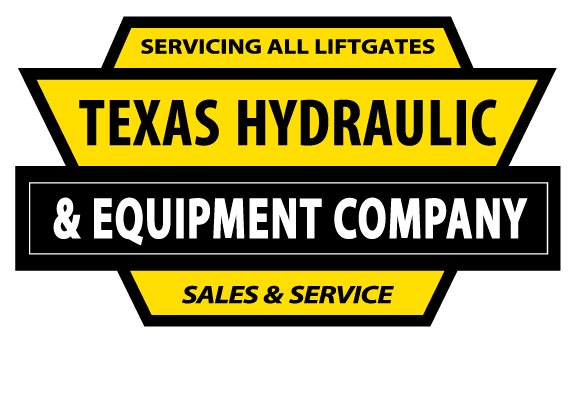¿Qué es un portón levadizo y cómo funciona?
QUÉ ES UN PORTÓN LEVADIZO (RAMPA HIDRAULICA) Y CÓMO FUNCIONA
Los portones o puertas levadizas (rampas hidráulicas) son una especie de héroes anónimos en el mundo industrial y de trabajo, ya que cumplen rápidamente las operaciones de carga y descarga cuando no hay otras soluciones disponibles. También amplían la funcionalidad para la fuerza laboral en diversas capacidades, aumentando de manera segura la productividad y la eficiencia cuando se requiere transporte y entrega de servicio liviano a moderadamente pesado.
Con un portón levadizo (rampa hidráulica) funcionando correctamente, la empresa logra una mayor independencia y permite a los empleados individuales lograr lo que de otro modo requeriría equipos más grandes o maquinaria pesada costosa. Durante casi 80 años, Texas Hydraulic & Equipment ha atendido las necesidades de reparación de portones levadizos de muchas empresas importantes.
Continúa leyendo para saber más de estas plataformas y la amplia gama de necesidades de transporte y elevación de equipos o materiales que cubren.
¿QUÉ ES UN PORTÓN LEVADIZO?
Es un dispositivo de elevación de carga generalmente instalado en la parte trasera de un camión o remolque. Muchas industrias los utilizan como plataforma si el lugar de entrega carece de un muelle de carga de la altura adecuada o si otras soluciones de elevación (por ejemplo, montacargas o polipastos) no están disponibles. En tales circunstancias, las industrias normalmente requieren un portón levadizo (rampa hidráulica) para cargar o descargar artículos que excedan las 150 libras.
Existen numerosas marcas en el mercado con un historial comprobado de funcionamiento seguro y confiable. Por eso es importante asegurarse de que el técnico de servicio tenga un historial igualmente sólido de trabajo con las principales marcas y modelos de portones levadizos, incluyendo soluciones personalizadas para equipos especializados o obsoletos.
¿CÓMO FUNCIONA UN PORTÓN LEVADIZO?
Utilizan mecanismos de transferencia de energía hidráulica, neumática o eléctrica para dirigir la energía hacia una fuerza lineal o rotacional, que mueve la plataforma de la compuerta levadiza. Las operaciones de elevación se controlan mediante una caja de interruptores con controles simples de arriba/abajo, y las compuertas generalmente tienen una capacidad de carga segura de entre 1,500 y 3,500 libras.
Dependiendo del diseño, un portón levadizo (rampa hidráulica) utilizará varias combinaciones de poleas, ruedas, rodillos, cables, cadenas y otros componentes, y la tecnología cambia cada año. Los actuadores electromagnéticos, por ejemplo, simplifican drásticamente los diseños de los portones levadizos, reduciendo el peso y la complejidad del sistema en el proceso. Sin embargo, las tecnologías de puertas neumáticas/hidráulicas han perdurado y siguen innovando y mejorando constantemente.
Si has solicitado un servicio de envío o recolección que requiere una entrega por portón levadizo (rampa hidráulica), el conductor casi siempre será responsable de manipular el portón y la carga. Sin embargo, es bueno que cualquiera aprenda a utilizarlo de forma segura y responsable.
BENEFICIOS DE UTILIZAR UN PORTÓN LEVADIZO
Además de que cumplen con ciertos requisitos para las operaciones de elevación y descarga autorizadas por la industria, los portones levadizos también amplían la funcionalidad para diversos profesionales de entrega y transporte. Incluso los particulares suelen equipar sus propios camiones, furgonetas o remolques con este tipo de plataformas simplemente para aumentar su propia utilidad.
Para cualquier uso, estos son los principales beneficios:
Logra una elevación eficiente y de alta capacidad.
Utiliza equipo mínimo
Mantiene a las tripulaciones seguras
Protege las superficies y equipos del lugar de trabajo.
Cumple con varios códigos y regulaciones de la industria general
Reduce la necesidad de otros equipos.
Viaja contigo a cualquier parte
LIBERA EL PODER DE LAS SOLUCIONES DE UN PORTÓN LEVADIZO DE TEXAS HYDRAULIC & EQUIPMENT
Desde 1945, Texas Hydraulic & Equipment ha estado a la vanguardia de la tecnología de portones levadizos, incluidos varios mecanismos de montaje y elevación. Hemos atendido las necesidades de elevación de una amplia gama de industrias.
Atendemos un sinfín de necesidades de servicio con nuestro centro de pruebas, servicio y repuestos premium para portones levadizos en las afueras del área metropolitana de Dallas. Los clientes pueden estar seguros de contar con soluciones OEM de la más alta calidad, así como reparaciones personalizadas totalmente compatibles para portones levadizos más especializados que ya no se fabrican.
Texas Hydraulic & Equipment es de operación familiar, por lo que estamos comprometidos a brindar servicio y reparación de portones levadizos de clase mundial con valores. Contáctanos para obtener más información sobre nuestros servicios o para solicitar una cotización y mantener un levantamiento móvil seguro y eficiente a largo plazo.
Image Source: Deep Desert Photography/Shutterstock







